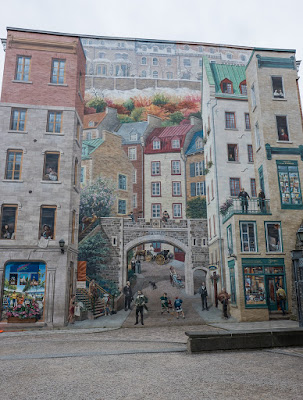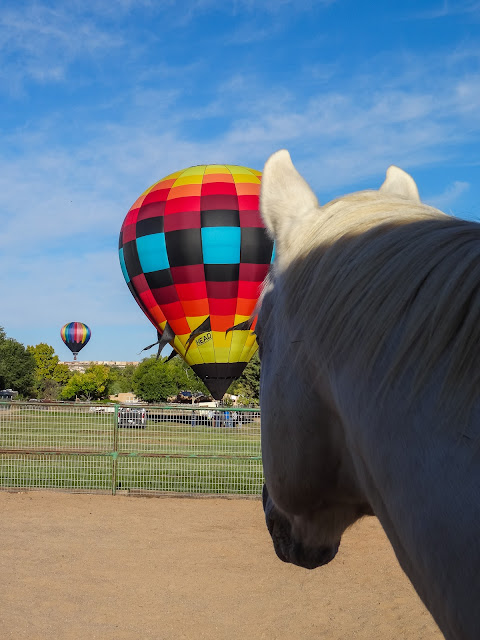Why we travel.
Why do we travel? It’s an oft asked question, particularly
by travel magazines and the reasons given are myriad -
“To get away from my routine and clear my head.”
“To test myself by
doing something rugged and tough.”
“To be exposed to other cultures, languages and people.”
“To meet new people and to see new sights.”
Every reason is valid and every place one goes offers some
portion of the core of these desires. Well, except perhaps for cruises because there
isn’t much ruggedness on a modern liner although there is ample opportunity for
meeting new people and getting away from the routine.
When I was spending all my time the road, I first fell in
love with seeing new sights. Asia was so strange and so old, that every day and
every place exposed me to something that shocked my conventional western
perspective. The wealth, the poverty, the lack of privacy and places 5000 years
old – all were far different than what I’d been exposed to in my sheltered life.
Next it became about testing, visiting far flung places alone and on local transportation,
an incredible stretch for someone who had spent his life avoiding travel as
much as possible. Little by little though, my wonder changed and it did so as I
began to meet people in their everyday situations. First there was the bird man
in Century Park, Shanghai with whom I shared my very first tentative words of
Chinese. Next, the driver who ferried us around Chongming Island in search of
birds. And from then on more and more people, each one met and conversed with
in all kinds of situations, all over the world. As the number of miles and
locations grew, so did my list of wonderful encounters.
These days, with much less travel and far more time spent
living a regular life, these opportunities have become scarcer. Dealing with
the clock repairman in Albuquerque is not the same as the old woman spinning
Yak wool at the top of Kharola Pass in Tibet. It makes me wonder whether
special interactions require that both parties bring something truly unique to
the exchange. Or perhaps a combination of shared experiences and something
unusual. Like the Flamenco bar owner in Madrid showing us the pictures of his
Arab on his cell phone. Or the waiter in Barcelona who used to work at the Filipino
branch of my company. Something about the circumstances that cause your paths
to cross and then something common that enriches your exchange. I suppose if
you have nothing in common with the shop owner in Dublin, your meeting is no
different than with a shop owner in Santa Fe.
A few days ago we entered Mexico at Nogales and made our
regular stop at the immigration center south of town. The process here has
changed so many times in the last twenty years that you’re never really sure
what you’re going to get when you open the door and begin the process to obtain
a visa. For a time you had to place a bond on your car, regardless of the length
of your stay. Then the bond was waived as long as you didn’t leave the state of
Sonora. For the past five years or so, it has been no bond necessary unless you’re
heading south of Empalme which is just beyond where we stop. Lately, the only
confusion has been around the length of stay, and once we discovered that seven
days is the magic number to avoid having to bond the car, every trip became seven
days. With that in mind, getting a visa becomes nothing more than an
opportunity to practice your Spanish with the immigration agents who in general
have some modest English that they want to practice. It’s rarely tough and both
parties generally excel in an admixture of their native tongues.
This time though, I was in the mood to butcher the language
so I struck up a conversation with an older agent who waved us over to his
station. Problem was, he didn’t want speak Spanish, he wanted to speak English.
Which was perfect. It turned out that like me, he was from New York although
born in the Big City. We chatted about that as he gave us our forms and as we shifted
our focus to filling them out, he started to do a worthy rendition of “New
York, New York.” I joined in on the “waking up in a city that never sleeps”
verse, which he found pretty funny. On completing the song we talked a bit
about where he lives now and what he likes to do and it turned out that he was
a musician who specializes in the accordion and that he just happened to have a
video on his phone which he pulled up and played for us. Here was our agent,
playing a corrida in front of his
Christmas tree. My Lovely Wife grabbed my hands and we proceeded to do a
one-step around the immigration office which elicited a thumbs-up from our
friend. Following our dance, we had a quick look at photos of his son and wife
and house, all of which he was justifiably proud. With a hearty handshake and “mucho
gusto” we on our way, laughing about it for hours down the road.
A few nights later we parked our car in front of one of our
favorite restaurants. There was a moment of consideration as the spot we chose
was “dedicated” to one of a handful of local businesses (all closed) that
formed the first floor of the building; probably low risk, so we locked up and
headed to the stairs. A curio shop was open though and the owner was standing in
the doorway. He smiled and said, “Enjoy your dinner” which we replied to. Being
the ever paranoid person that I am about parking in foreign countries, I
considered moving it but decided he didn’t have any ulterior plans. We went
upstairs and had a nice meal.
As we left, we stopped to see the things hanging on the wall
outside his shop. There was a nice metal Burro that we decided would look great
on our barn so I suggested we go inside. I asked how much and he wasn’t sure,
even after rifling a binder full of shipping invoices from his suppliers. He
said “probably 600” based on its similarity to a big Kokopelli on the wall
inside. I hemmed and hawed for a second and the price went down to 500, take it
right now. Now I’m never good with something I don’t really want so I told him
we’d think about it and that we’d come back. The standard tourist line which he
met with the standard “yea right.” We left the shop, but before getting in the
car I had a change of heart (it takes me a few minutes to calculate the cambio when I’ve had a margarita) and we
decided to go back and buy it. From there we had a great discussion in Spanish
about how pesos $40 was worth (I only had USD) and eventually we reached an
agreed to price of $42. From there our conversation ebbed and flowed from my
iPhone (do you want to sell it?) to our jackets (do you want to sell those?) to
the proper word for the construction of down coats and their contents (canales
de plumas de patos) to our new friend’s history. His name was Timoteo and he’d
lived in Albuquerque as a mojado (that terrible word for illegals) along with
Rochester, Minnesota and Iowa. In our town he’d worked at the auto repair shop
up the road but had returned to Mexico because the US was just too cold. He was
from Acapulco originally and even this part of central Sonora was testing his
tolerance for chilly weather. We bid our adieus and took our burro home.
These are the kinds of moments that make for a rich life - things
that would never happen if you stayed home or traveled in a way that kept you
inside a little bubble of security, limiting your engagement in the interaction
to the bare minimum to complete the transaction. I often think about Americans
abroad, and how they view every transaction with the skeptical eye of trying to
detect the rip off. It’s unfortunate, but I think something to be accepted from
a society that by and large really doesn’t like being put at any risk abroad.
Many of my friends have called me crazy for things I’ve done in foreign lands
and yet I consider all of them pretty low risk. I’m not a conflict photographer
and I haven’t walked across Afghanistan. All I’ve done is grabbed my companions
arm and dragged them down a dark alley in old town Shanghai. And I’ll do it
again if it means meeting someone with openness for conversation and a story to
tell.




Comments